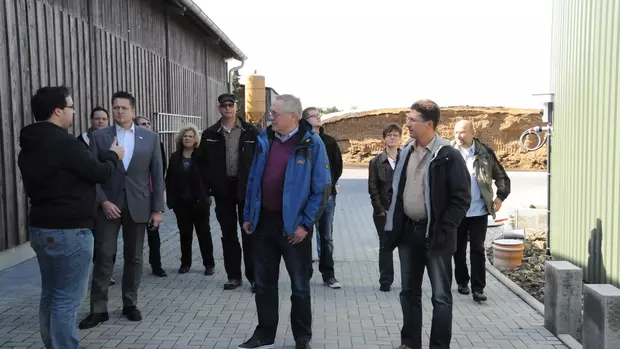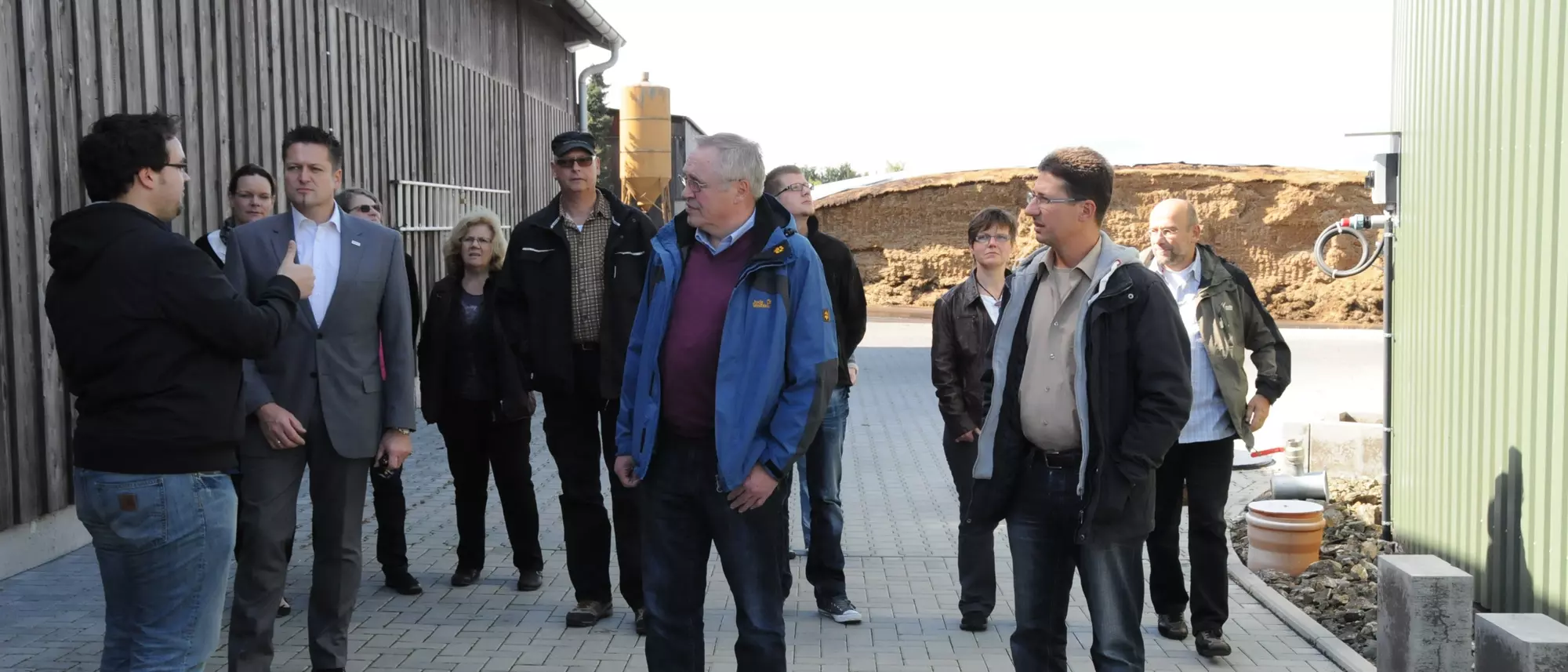
Experts agree: decentralised energy generation makes a decisive contribution to the success of the energy transition and the commitment of municipalities is an important building block in its implementation. However, in order to fulfil the role model function often ascribed to them and act as pioneers, cities and municipalities need sufficient information on the topic of renewable energy and the relevant partners in the regions.
Keeping up to date
Stadtwerke Gießen (SWG) has been taking on this role for many years and regularly brings municipal representatives up to date on the energy transition and energy market at the Municipal Environmental Get-Together - on Thursday 27 September for the 14th time. The topic of biogas and its further processing into electricity and heat was on the agenda. Over the past year and a half, SWG has built up a great deal of expertise in this area. We trimmed our biogas plant in Großen-Buseck for maximum efficiency right from the start and designed the entire project so that we could learn from it," explained Matthias Funk, head of the district heating department and responsible for the project. In future, other municipalities wishing to implement similar projects will also benefit from the - consistently positive - experience gained.
The number of participants at the municipal environmental get-together shows just how much interest there is in biogas. Eleven energy officers, environmental consultants and other decision-makers from seven neighbouring towns and municipalities accepted the invitation to Lahnstrasse.
Green electricity from combined heat and power generation
Among other things, they learnt that biogas from the region is one of many components of SWG's strategy to expand electricity and heat production from combined heat and power (CHP) as well as the district heating supply in Giessen and Central Hesse. The company commissioned its first combined heat and power plant (CHP) 30 years ago. Compared to separate electricity and heat production, CHP increases efficiency by around 40 per cent. SWG now operates a total of around one hundred small and large CHP plants with a total electrical output of around 30,650 kilowatts (kW) and a thermal output of 6,600 kW. They generate 109 million kilowatt hours (kWh) of the electricity that Stadtwerke Gießen supplies to its customers - around 40 per cent of the total volume. The remaining 60 per cent is generated by hydropower plants. "This means that private customers already receive exclusively 'Giessen green electricity' - regardless of the tariff or product selected. Every private customer can therefore be sure that no electricity generated in nuclear or coal-fired power plants reaches their household," emphasised Michael Rösner, Head of Private and Commercial Customer Sales at Stadtwerke Giessen, during the municipal environmental meeting. The company's goal by 2020 is to increase the proportion of regionally produced electrical energy from CHP to 50 per cent.
Matthias Funk emphasised the crucial role this expansion plays in the energy transition: "In view of the increasing volatile production from wind power and photovoltaics, we need quickly controllable conventional generation capacity to secure the supply - around 0.8 kW for every kW from EEG plants."
Great interest in biogas
The municipal representatives were given an insight into the potential of biogas in this context and how cities, municipalities and the entire region can benefit from it. Following the presentations, they were able to see for themselves on site in Großen-Buseck and ask further questions. "The event showed that there is a great need for information. One of our tasks as a regionally anchored energy company is to meet this need - which we do at the regular municipal environmental meetings," emphasised Michael Rösner.
Together with municipalities from the region, SWG's heating experts also want to drive forward the local energy transition in other projects such as in Großen-Buseck. "We are always on the lookout for partners with whom we can achieve a lot through cooperation - there is great potential," assured Matthias Funk.

